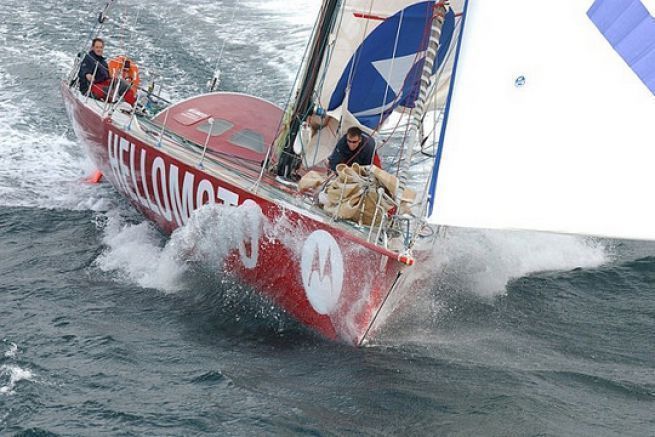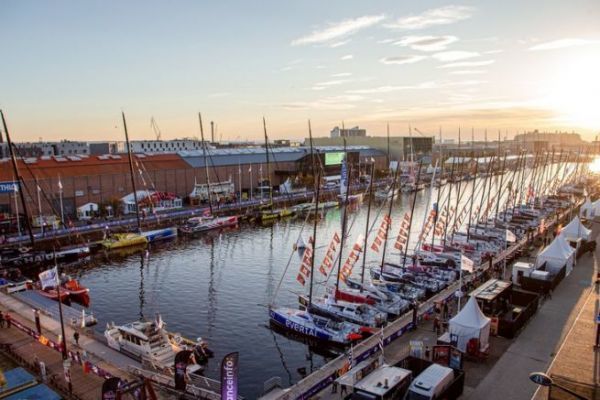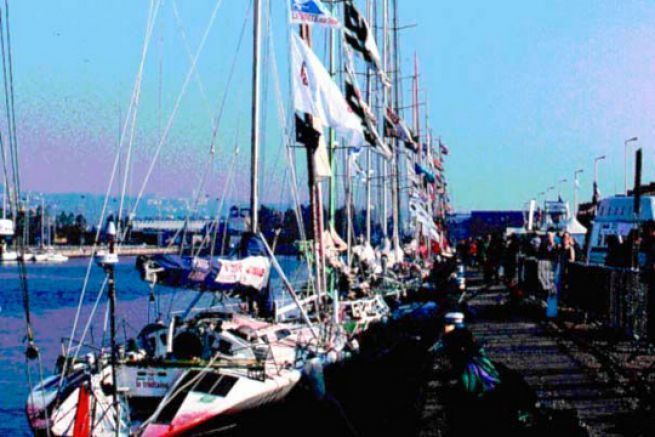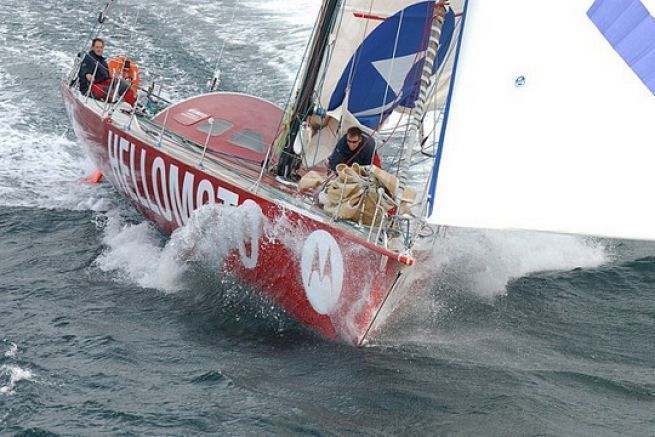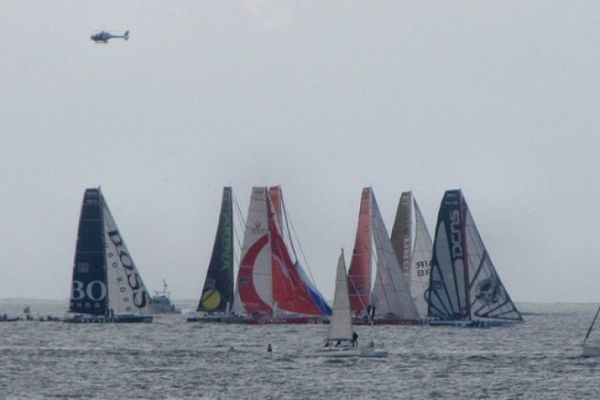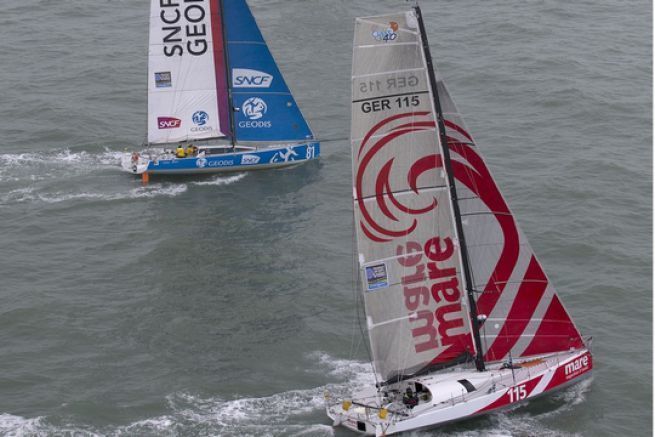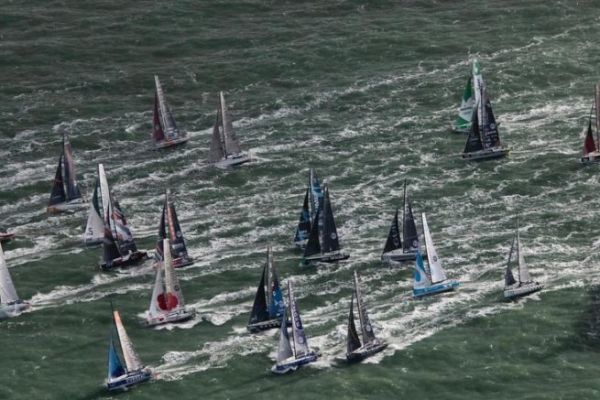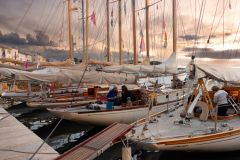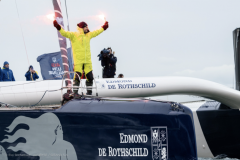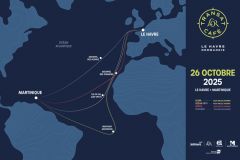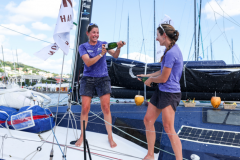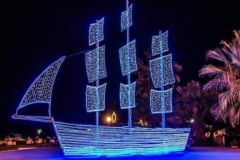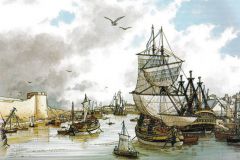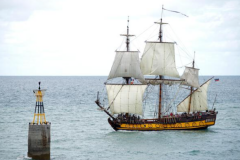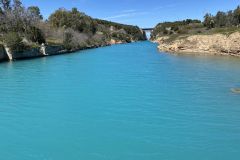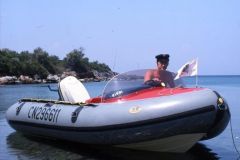1999 âeuros Departures and disappearance of Paul Vatine
By way of innovation, the Transat Jacques Vabre proposes a staggered start for the two fleets, bringing together twenty prototypes. The monohulls have to cover some 4,500 miles, while the multihulls have over 5,500 miles to cover, so that the crews arrive in Colombia together.
Alain Gautier and Michel Desjoyeaux capsize at the bow off the Cotentin peninsula! The crew was unharmed and the trimaran was towed by the SNSM to Dielette. Meanwhile, the rest of the fleet headed south to make the best of the storm ahead. But four days later, CROSS Etel received a distress call: Paul Vatine had fallen into the water, and despite the diversion of Marc Guillemot and Jean-Luc Nélias, the Norman skipper was not found in these very rough seas and winds of over 50 knots.
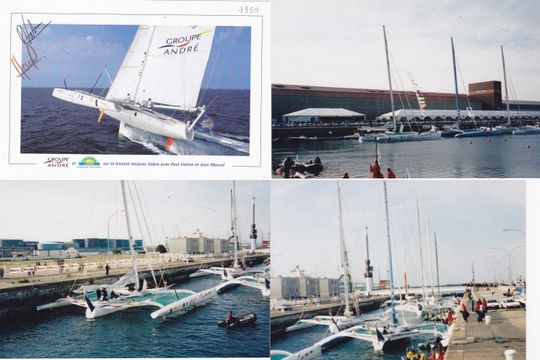
Jean-Maurel was picked up by a container ship, while Loïck Peyron and Franck Proffit were the first to round Barbados, heading for Saint-Barth, before retracing their steps due to a tropical storm and taking victory.
In the monohull class, Catherine Chabaud and Luc Bartissol were forced to make a technical stop to recover a spinnaker. After leading the race all the way to Pain de Sucre, Thomas Coville and Hervé Jan overtook them to take victory.
2001 âeuros Change of course
For this 5 e edition, Colombia gives way to Brazil and Salvador de Bahia replaces Cartagena. From now on, the trade winds all the way to the Caribbean are a thing of the past. The monohulls are on a direct course, while the multihulls have to clear Ascension Island.
The ORMA trimarans are benefiting from particularly favorable weather conditions, especially from the tip of Brittany to the Doldrums. After five days of racing, the frontrunners are already off the Cape Verde archipelago. But crossing the equator is far more complicated. And while the pairing of Alain Gautier and Ellen MacArthur had negotiated three quarters of the course perfectly, the breakage of their spinnaker pole, followed by the failure of a hydraulic jack on the rig, caused them to lose the ten miles or so they had held on to. Franck Cammas and Stève Ravussin exploded the counters with a three-and-a-half-hour lead.
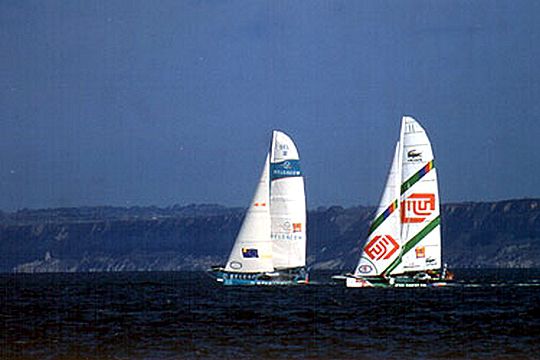
As the Imoca monohulls have no course markers to round, the route is easier for them. Roland Jourdain and Gaël Le Cléac'h were crowned winners, with a five-hour margin over the British duo, Mike Golding and Marcus Hutchinson.
2003 âeuros A handful of arrivals
There are 38 boats taking part in this 2003 edition, but they won't all be setting off at the same time. While the monohulls set off the day before, the multihulls had to wait four days later, as the weather did not permit their departure. However, they no longer have to sail around Ascension Island.
Although the 2002 Route du Rhum decimated the Orma trimaran fleet, the Transat Jacques Vabre brings together a strong field. The Imoca boats are taking advantage of this North-South transatlantic race, which offers a similar course to Brazil, to fine-tune their settings before the Vendée Globe. Weather conditions are very tough as they leave the English Channel, for the monohulls that have already set sail. Bernard Stamm, with a broken rib, is forced to abandon.
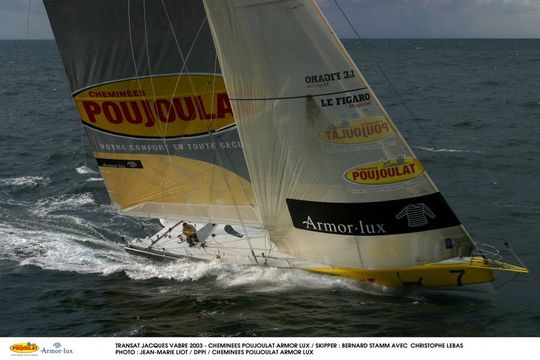
While the configuration became favorable for the multihulls, the monohulls struggled in unstable winds all the way to the equator, and the Jean-Pierre Dick - Nicolas Abiven duo came out on top in the Doldrums on their new Farr design, winning the race. The 2 e place was hotly contested between Jourdain - Thomson and Golding - Thompson, who were only 19 minutes apart at the finish in Salvador de Bahia... As for the trimarans, they're going full steam ahead, with Franck Cammas, this time partnered by Franck Proffit, completing the double with a margin of over an hour over Jean-Luc Nélias and Loïck Peyron.
